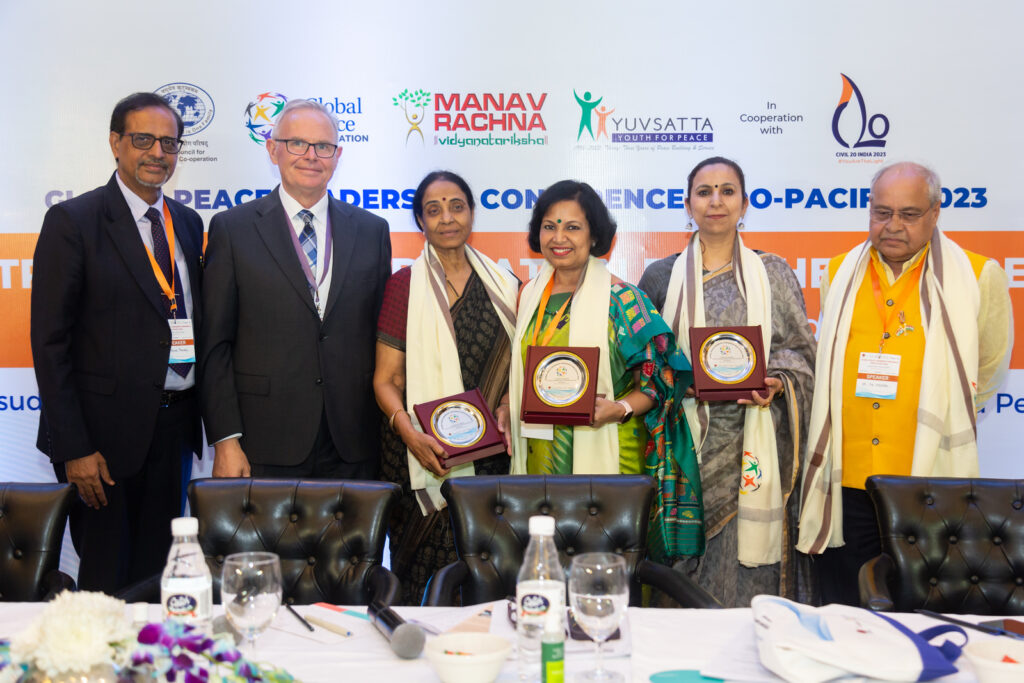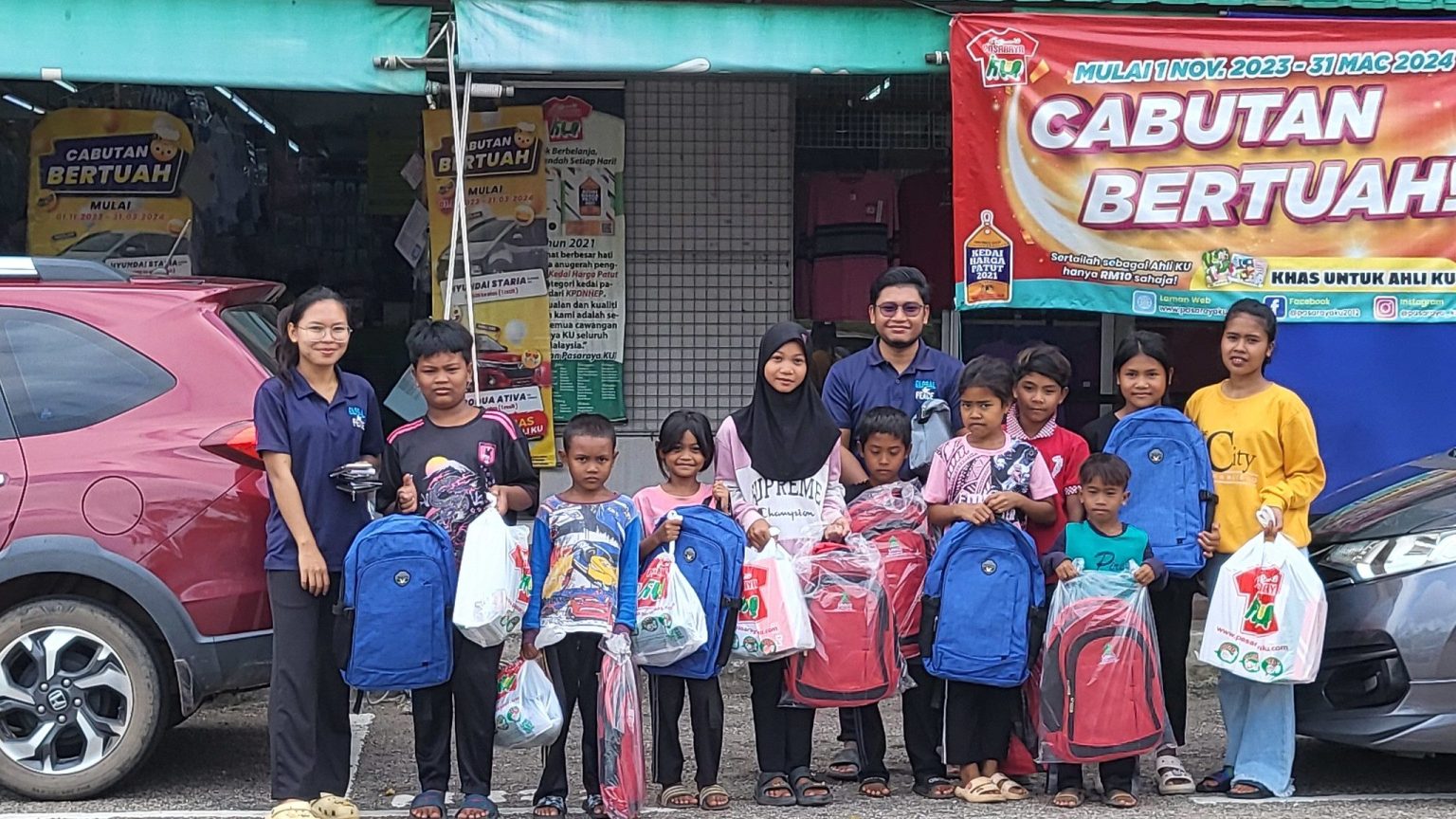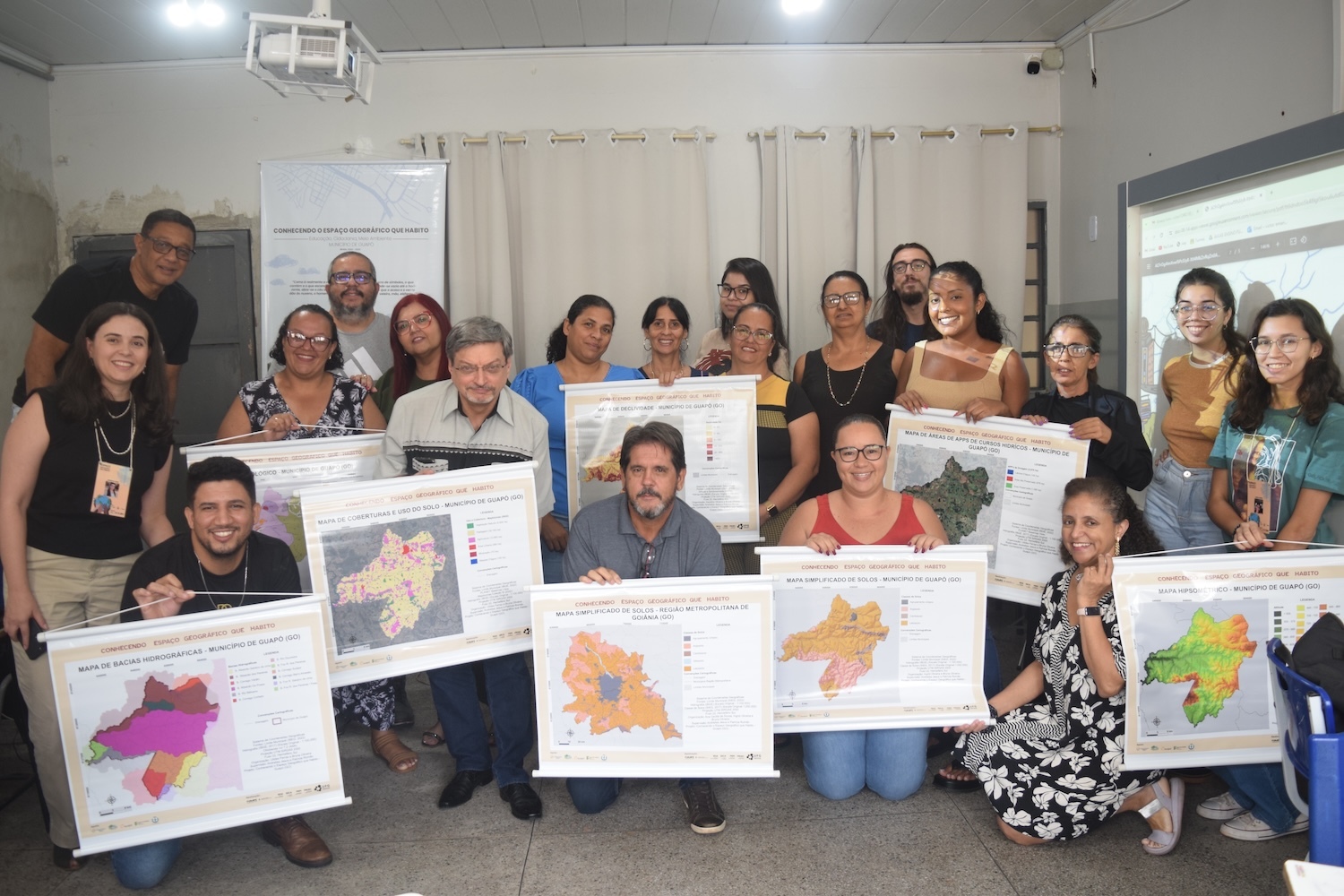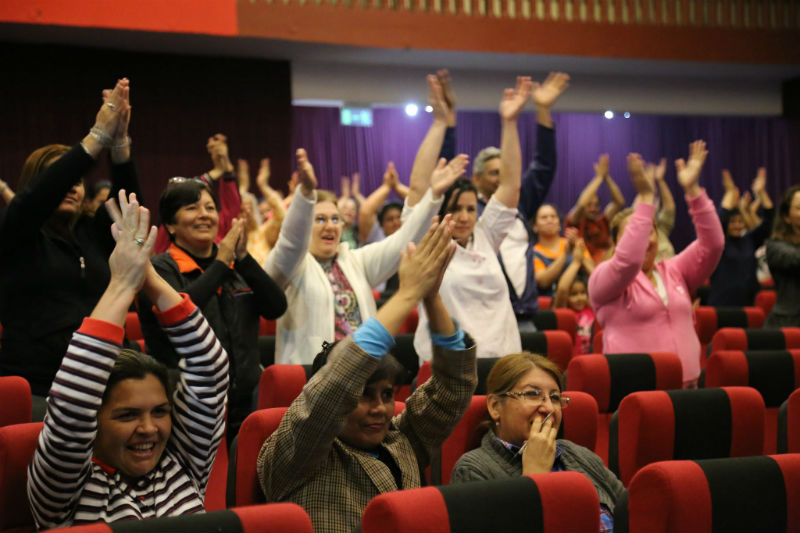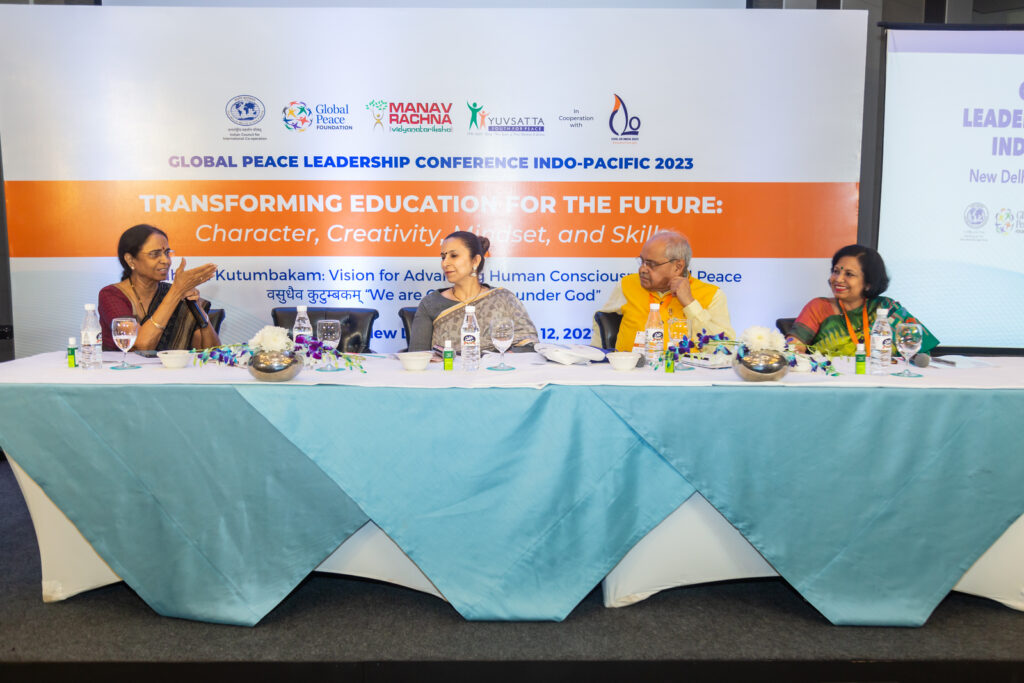
Transforming education is a process of refocusing learning priorities toward developing the character competencies and future workforce skills that are in high demand by employers and toward preparing students to make a positive impact on their world. Students learn digital technologies, explore entrepreneurial enterprises, develop real world problem-solving skills, and build core values of leadership and integrity.
During these sessions, educators and thought leaders analyzed new trends, ideas, policies, and innovations to prepare students to be successful in all aspects of their lives and contribute to creating flourishing societies and peace.
Session I: The Need to Transform Education for the Future
The need to transform education through moral and innovative leadership has never been more pertinent as educators rethink ways to prepare their students for the world of Web 3.0 exponential technologies, automation, artificial intelligence, robotics, The Fourth Industrial Revolution (4IR), climate change, as well as social issues related to inequality and connecting beyond differences. In this session, education experts explored what constitutes a quality education in building character and leadership, continuous growth, and lifelong learning toward sustainable development, peace, and flourishing societies.
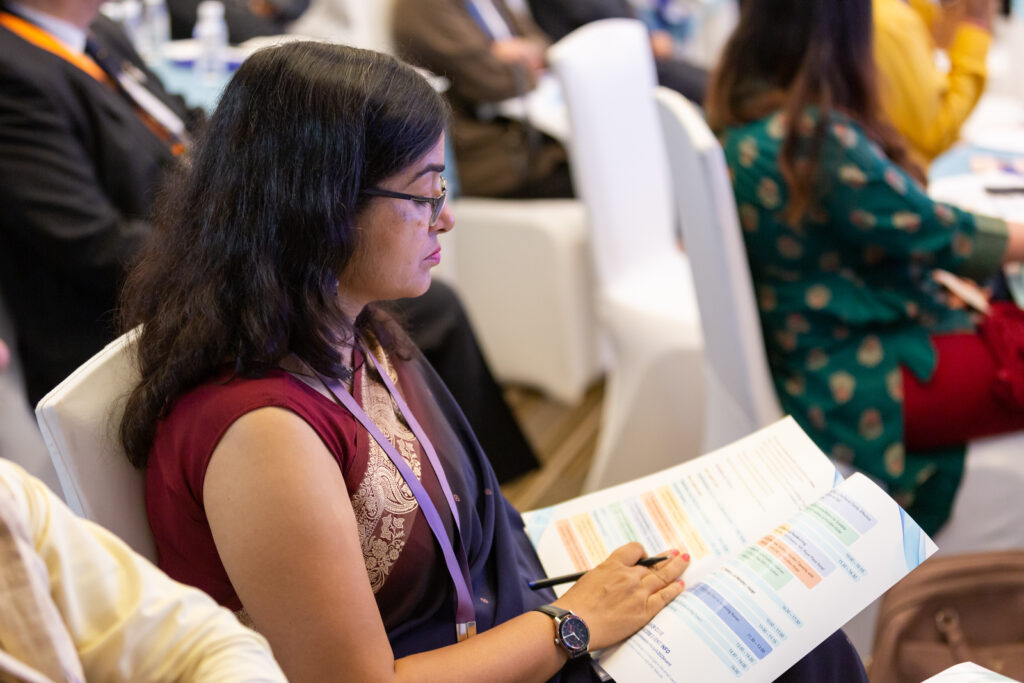
Education session II attendee
Session II: Realizing Future-Ready Education
Cross-sector thought leaders shared their perspectives on the essential competencies and changes needed in education to ensure that students have the global citizenship capacity to positively impact their lives, work, communities, and world. Teachers and school/college leaders will need to reimagine their roles by having the future arc of their students at heart in creating engaging, innovative, personalized, differentiated, and collaborative school cultures.
Schools and colleges can increase their effectiveness as community learning hubs that increase equity and access through innovation, technology, and entrepreneurship guided by shared values toward a peaceful and prosperous future.
Session III: Building Educator Capacity with Moral and Innovative Leadership
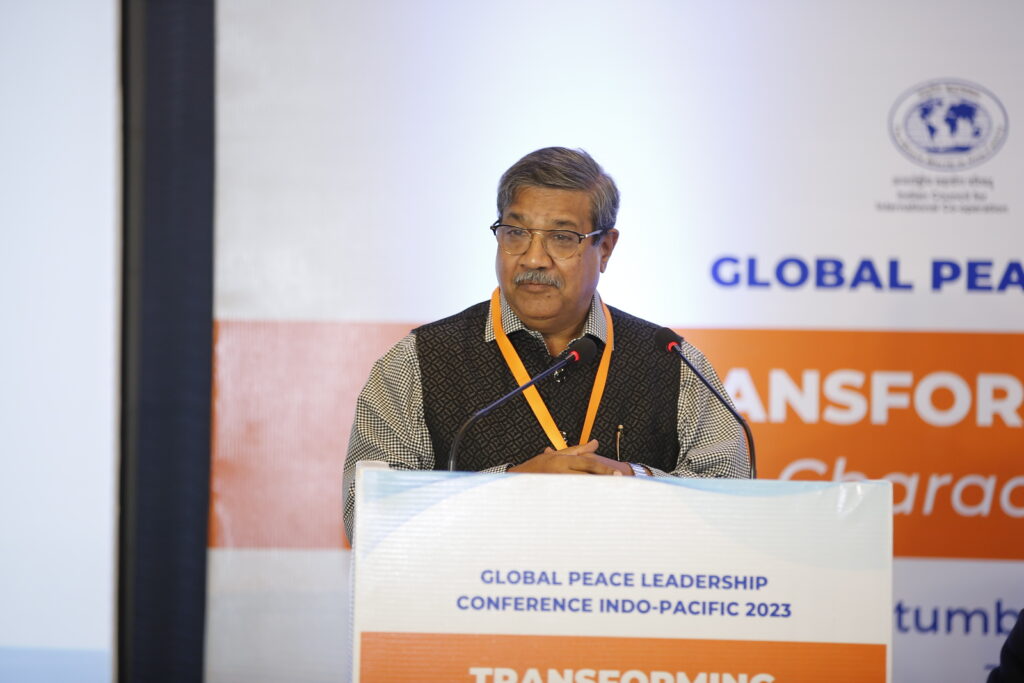
Session chair Dr. Sunil Rai, Chancellor, University of Petroleum and Energy Studies .
Teachers’ and educators’ roles require re-envisioning teacher development with new levels of continuous transformation, innovation, and lifelong learning to impact lasting outcomes. Session III explored the pedagogical innovation, entrepreneurship, and leadership required from educators to help advance students beyond cognitive-based education, including character, socio-emotional training, critical thinking, analysis, and interdisciplinary collaboration with a societal purpose and impact.
The new roles call on educators to be models, master facilitators, collaborators, risk-takers, and caring leaders who stimulate ownership and agency, to make sense of complex realities related to global challenges of human rights, polarization, peace, and sustainability. Panelists examined the reinforcing ecosystem approach of the home, school, and community in advancing a consistent and reinforcing perspective that exemplifies moral and innovative leadership.
Addressing the final session, Global Peace Foundation Vice President for Education Dr. Tony Devine explained that the 2022 UN Transforming Education Summit was convened in response to a global crisis in the quality and relevance of education. Learning, he said, is no longer about teaching something but about building a reliable moral compass to help in finding a way through a complex, volatile, and ambiguous world.
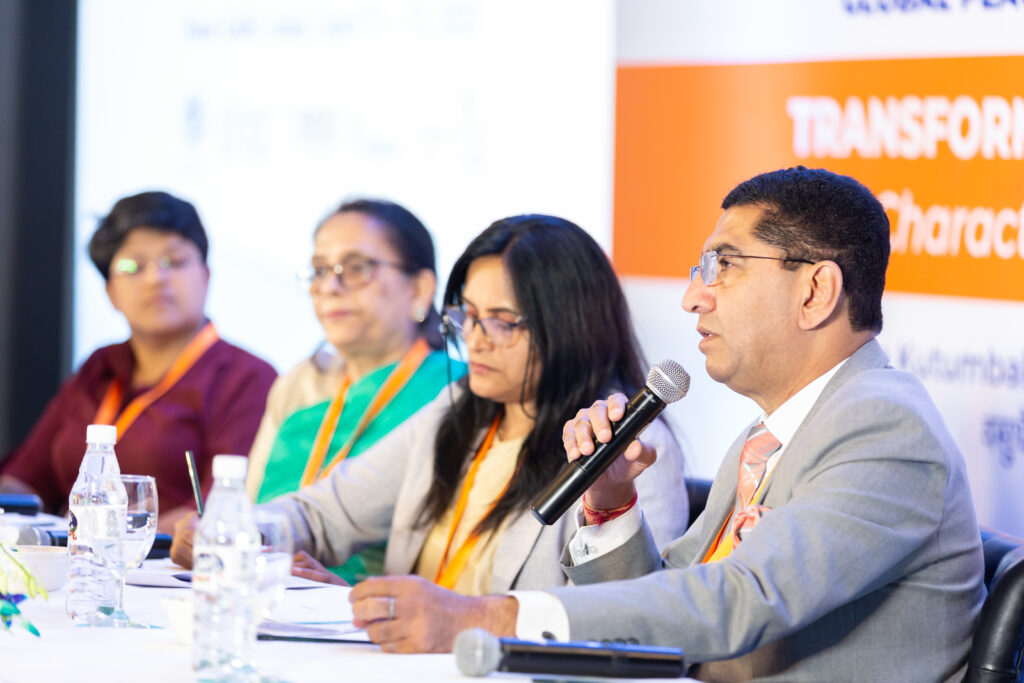
Lft. Gen Dr. R K Anand, Director General, Manav Rachna International Institute of Research and Studies Plenary theme: Realizing Future-Ready Education.

Left: Session chair Rajan Welukar, Vice Chancellor at Atlas Skilltech University; right interactive questions from participants
He outlined a process of reform that included transforming educators and transforming school culture by which students are transformed, performance achievement benchmarks are met, and students are future-ready. Panelists across three sessions set forth essential priorities for educators to address:
- Incorporate a student-centric approach to education focusing on personal and skill development and acquisition of knowledge.
- Promote inclusive education for economically disadvantaged youth that particularly provides for the needs of
students with disabilities, leaving no child behind. - Encourage experiential learning that builds compassion and promotes socio-emotional and cognitive development.
- Emphasize activity-based learning that imbues a sense of purpose through actions, and integrate the Sustainable Development Goals (SDGs) into education to inspire students to promote sustainability.
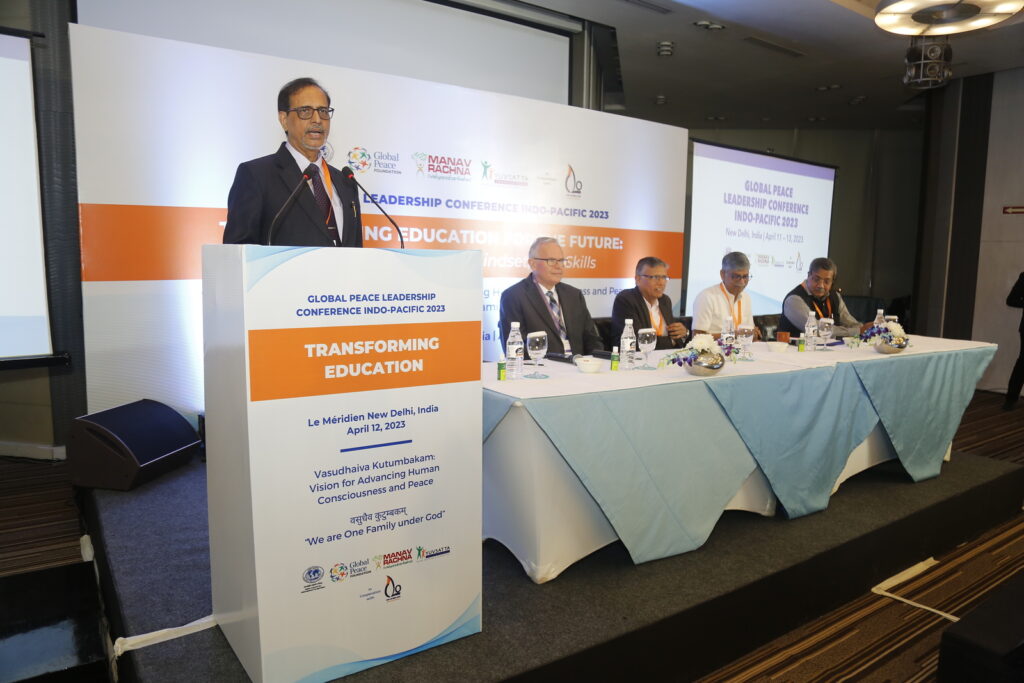
Session chair educator and author Dr Ashok Pandey.
The existing education paradigm, emphasizing knowledge acquisition, followed by skills, relationships, and finally character and values, needs to be restructured, Dr. Devine stated.
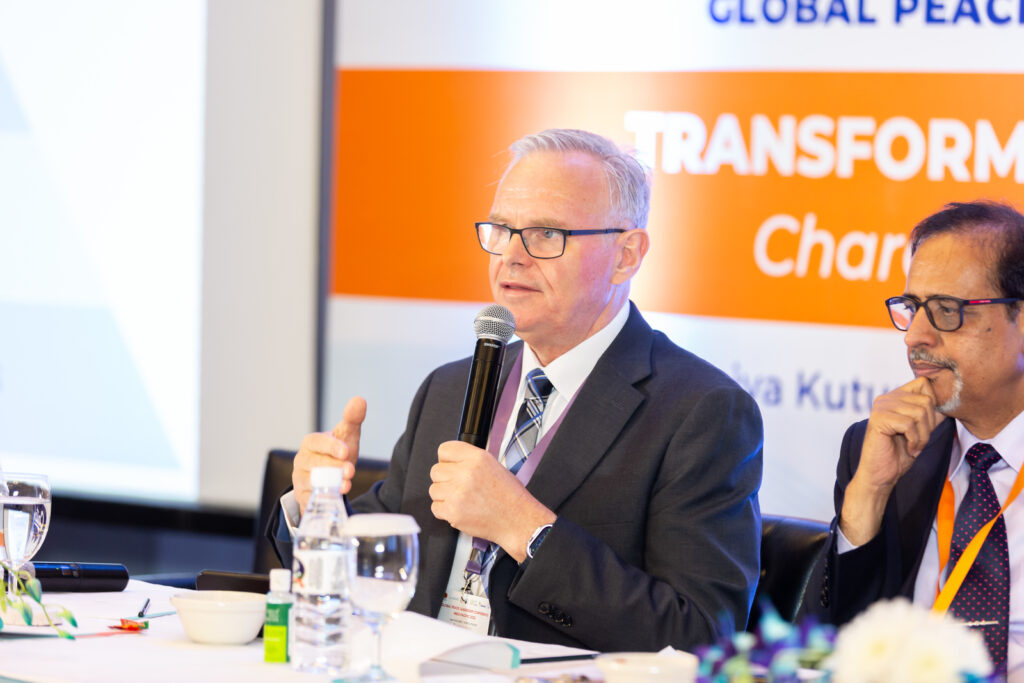
GPF Vice President for Education Dr. Tony Devine
Placing highest priority on character and values, a transformed education ecosystem would then prioritize relationships, followed by skills, and finally knowledge application. This “wholistic” approach best prepares youth for an increasingly dynamic workplace and evolving social environment, where ongoing learning itself is a skill, not just an academic outcome.
Policy Recommendations for a New Era of Education Transformation
Dr. Devine concluded with education policy recommendations that he previously made on the C20 webinar on April 11:
- Invest in transformative competencies: character and values, growth mindset, skills and relationships, and new knowledge.
- Align education curricula at all levels to match societal needs and workforce.
- Engage cross-sector stakeholders (Ecosystem Approach) to support continuous professional development to improve the quality of education.
Students and educators with a strong foundation of good character and moral and innovative leadership can harness their creative ingenuity to bring about transformative change in all sectors and propel society toward a prosperous future and flourishing twenty-first century civilization.
